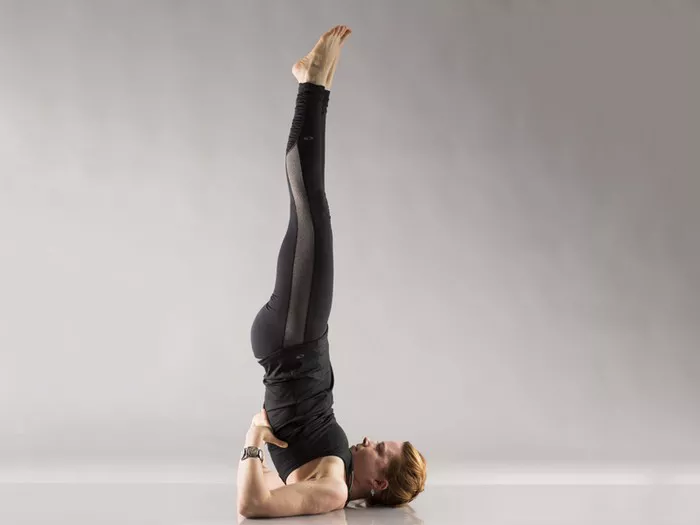Yoga, an ancient practice originating in India, has gained immense popularity worldwide for its physical, mental, and spiritual benefits. However, as it integrates various spiritual and philosophical elements, questions arise regarding its compatibility with Christianity. This article aims to explore the intersection of Christianity and yoga, examining whether the two are fundamentally at odds or if there exists a potential harmony between them.
Understanding Yoga:
Before delving into the relationship between Christianity and yoga, it’s essential to grasp the essence of yoga itself. Yoga is not merely a series of physical exercises; it encompasses a holistic approach to well-being, incorporating physical postures (asanas), breath control (pranayama), meditation, and ethical principles. At its core, yoga seeks to unite the mind, body, and spirit, fostering inner peace, balance, and self-awareness.
Christian Perspectives on Yoga:
Christian attitudes toward yoga vary widely, ranging from wholehearted embrace to outright rejection. Some Christians view yoga solely as a physical exercise regimen, divorcing it from its spiritual aspects, and therefore see no conflict with their faith. They argue that practicing yoga can enhance physical health and mental well-being without compromising one’s Christian beliefs.
However, others express concerns about the spiritual underpinnings of yoga, particularly its roots in Hinduism and its association with other Eastern philosophies and religions. For some Christians, the practice of yoga raises theological questions about the worship of foreign gods or the potential for spiritual deception.
Points of Contention:
The primary points of contention between Christianity and yoga revolve around the following aspects:
1. Religious Syncretism: Critics argue that practicing yoga may lead to syncretism, the blending of different religious beliefs and practices. They caution against adopting elements of yoga that conflict with Christian teachings, such as the belief in multiple gods or the concept of karma and reincarnation.
2. Focus on the Self: Another concern is the emphasis on self-realization and self-actualization in yoga, which some Christians perceive as contrary to the biblical principle of surrendering oneself to God’s will. They caution against the potential for ego inflation or spiritual pride that may result from intense self-reflection in yoga practice.
3. Mindfulness and Meditation: While mindfulness and meditation techniques are integral to yoga, some Christians worry about their compatibility with Christian prayer practices. They question whether mindfulness techniques borrowed from Eastern traditions align with the Christian understanding of prayer as communion with God.
Perspectives on Integration:
Despite these concerns, many Christians advocate for a nuanced approach to the integration of yoga and Christianity. They argue that it is possible to engage in yoga practice while maintaining a firm foundation in Christian faith and values. This perspective emphasizes discernment and intentionality in selecting yoga practices that align with Christian principles while eschewing those that conflict with them.
Proponents of integrating yoga and Christianity often highlight the following points:
1. Physical Health Benefits: They emphasize the physical health benefits of yoga, such as increased flexibility, strength, and stress reduction, which can contribute to overall well-being and enable individuals to better serve God and others.
2. Mind-Body Connection: Advocates point to the potential for yoga to deepen one’s awareness of the mind-body connection, fostering a greater appreciation for the body as a temple of the Holy Spirit and promoting holistic health.
3. Spiritual Discernment: Integrating yoga with Christian faith involves discernment and critical engagement with the spiritual aspects of yoga. Practitioners are encouraged to filter out elements that conflict with their Christian beliefs while embracing practices that enhance spiritual growth and connection with God.
Conclusion
In conclusion, the question of whether Christianity is against yoga is complex and multifaceted. While some Christians perceive yoga as incompatible with their faith due to its spiritual roots and philosophical underpinnings, others advocate for a more inclusive approach that allows for the integration of yoga with Christian beliefs and practices.
Ultimately, the compatibility of Christianity and yoga depends on individual perspectives, theological interpretations, and personal convictions. While some Christians may choose to avoid yoga altogether due to concerns about syncretism or spiritual compromise, others may find value in incorporating certain yoga practices into their spiritual disciplines, guided by discernment and a commitment to honoring God in all aspects of life. As with any spiritual practice, the key lies in seeking wisdom, discernment, and alignment with one’s deeply held beliefs and values.
FAQs:
What does the church say about yoga?
The church’s views on yoga vary widely, ranging from acceptance to caution. Some view it solely as a physical exercise, while others express concerns about its spiritual roots conflicting with Christian beliefs.
Does yoga believe in God?
Yoga itself is not a religion and doesn’t prescribe to a single belief system. While some practitioners integrate spiritual elements, others focus solely on its physical aspects. Therefore, whether yoga believes in God depends on the individual’s interpretation and practice.
What is yoga alternative for Christians?
For Christians seeking alternatives to traditional yoga, practices like “Christian yoga” or “Holy Yoga” have emerged. These adaptations incorporate Christian prayer, scripture, and worship into the physical practice, aiming to align yoga with Christian spirituality and beliefs. This allows practitioners to engage in yoga while staying true to their Christian faith.
















